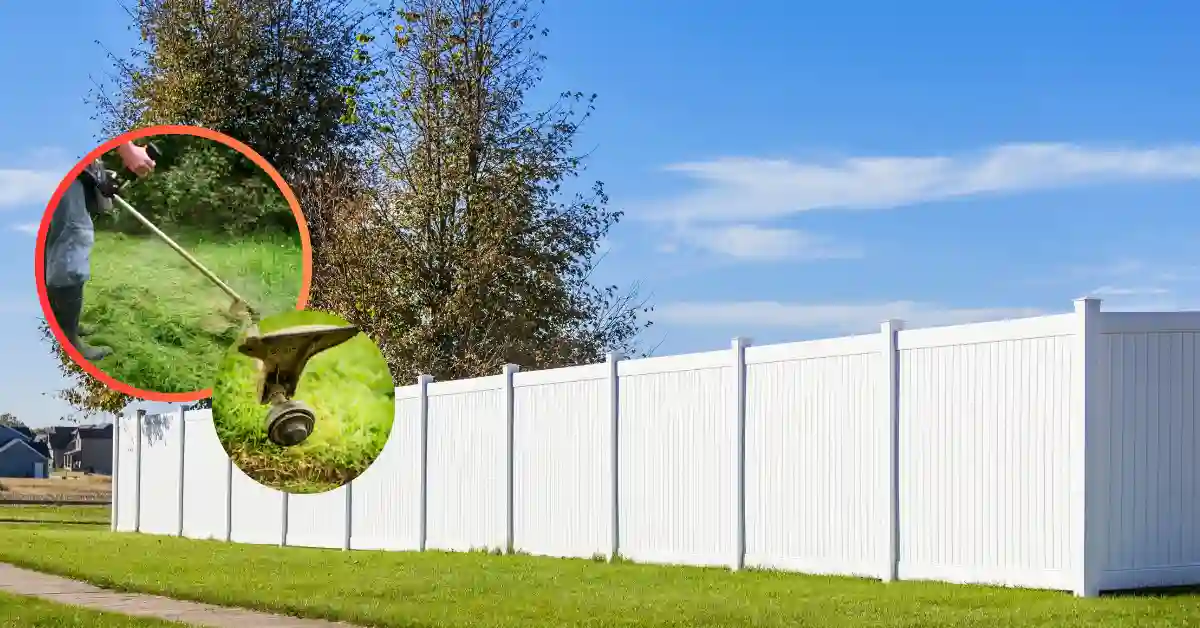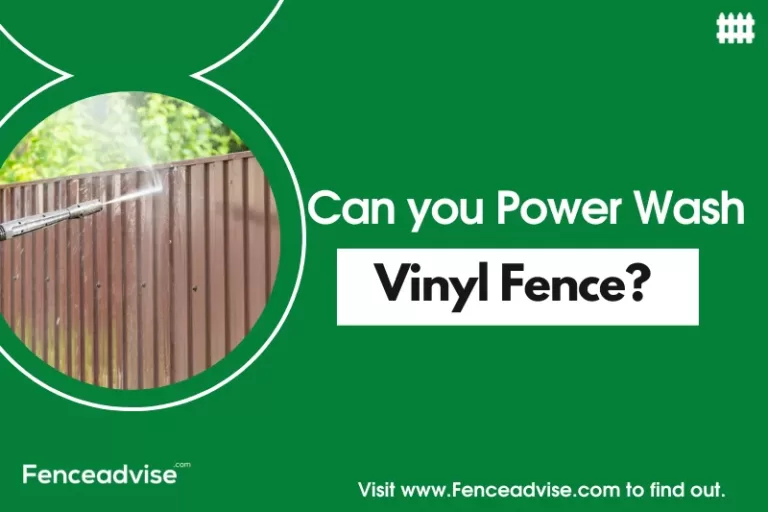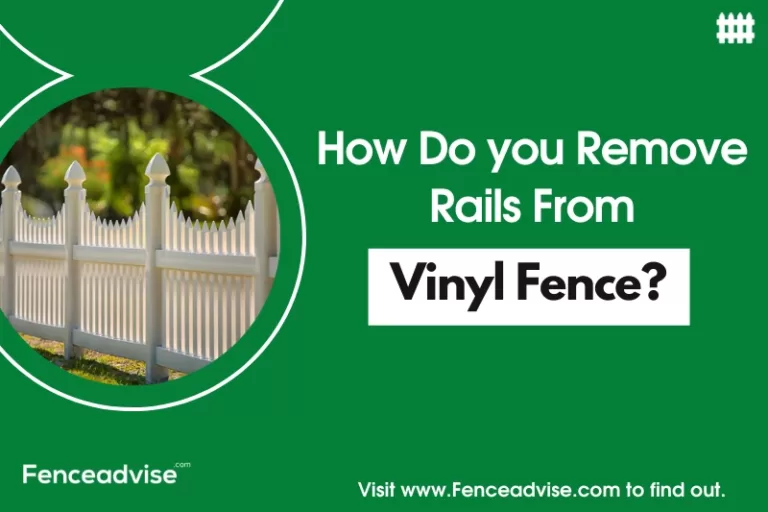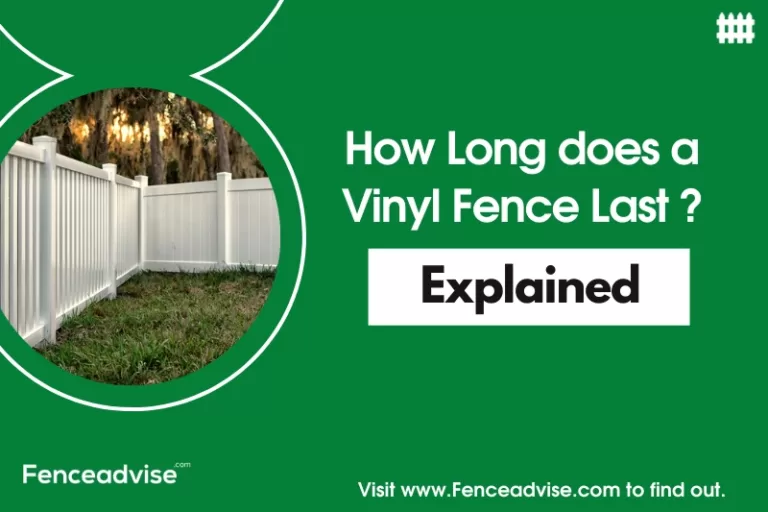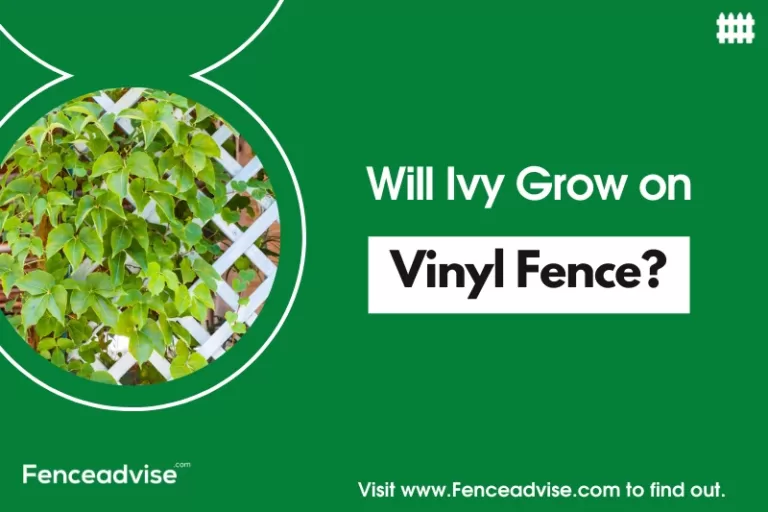We include products we think are useful for our readers. If you buy through links on this page, we may earn a small commission. Read our affiliate disclaimer here.
Yes, a weed eater can potentially damage a vinyl fence. As a vinyl fence owner, I’ve experienced that using a weed eater at full throttle or improperly can lead to scratches, gouges, or other damage to the vinyl material.
It’s crucial to start with a low setting and gradually increase the intensity to achieve the desired result without causing harm. Choosing the right type of weed eater, such as an electric model, can help minimize the risk of damage.
Additionally, taking precautions like using attachments or maintaining a safe distance from the fence while trimming can contribute to preserving the integrity of the vinyl fence.
Protect Fence from Weed Eater
To protect your vinyl, Wood, or Metal from weed wacker damage, consider using post-shield protectors. As someone with firsthand experience, these protective covers have proven invaluable.
Post shields are specially designed covers for fence or mailbox posts, available in various sizes and colors to fit your posts perfectly.
I’ve found these shields to be highly effective in safeguarding posts from damage caused by yard maintenance tools like string trimmers or weed eaters.
Installing post shields is a breeze; no tools or screws are required. The shields act as a barrier, preventing accidental scratches, gouges, or other forms of damage during routine yard maintenance.
This simple solution not only enhances the longevity of your vinyl fence but also adds a layer of convenience to your maintenance routine. As a vinyl fence owner, I highly recommend post-shield protectors for effective and hassle-free protection.
Type of Weed Eaters
There are mainly two types of weed eaters, gas-powered and electric. Gas-powered models are more powerful but also require oil, mixed fuel, etc., before usage. Electric-powered models are perfectly fine to use on vinyl fences as long as they are used properly.
Battery-powered models are yet another option, but even though they are great for not polluting the environment with harmful emissions, these models don’t tend to be as powerful and lasting as the other two types of weed eaters.
How to Trim Grass Around a Vinyl Fence?
Maintaining a neat vinyl fence involves strategic steps, especially when trimming grass. As a fence owner, my go-to method is using a Post Shield Protector.
It’s crucial to install this protector before initiating any trimming. In my experience, this proactive approach acts as a sturdy defense, preventing potential damage from trimmers.
Start by securing the Post Shield Protector on your fence posts, forming a protective barrier. This initial setup ensures that your vinyl fence remains unscathed during the grass-trimming process.
The shield effectively guards against scratches and gouges caused by yard tools, offering a reliable solution for preserving the fence’s aesthetic appeal.
Remember, incorporating the Post Shield Protector as part of your routine fence care not only enhances the longevity of your vinyl fence but also streamlines the trimming process. It’s a practical and firsthand-tested strategy to keep your fence in top-notch condition.
fence advise editor’s choice
Post Shields Post Protector
How to Do Edging Around a Vinyl Fence?
You can use your weed eater to do the edging. It will be a little hard because you have uneven ground and it is hard to edge a vinyl fence because it usually doesn’t have a gap to let you set the edger against.
If you have sloped ground, then use a shovel and dig a trench along the edge of your fence. Then lay down some landscape fabric and weed block cloth over the top of it.
The edging will sit on top of this. You can even go ahead and lay down some bricks if you want.
Find top-rated fence installers in your area
How to Mow Strip Under Vinyl Fence?
For a thorough and effective mowing of the strip under the vinyl fence, consider the following detailed steps:
- Power Up: Start by ensuring the weed eater cord is securely plugged into a power outlet, providing a stable power source for the task.
- Hold and Approach: Lift the weed eater and approach the strip under the vinyl fence to mimic the motions involved in cutting grass.
- Cord Management: Use one hand to grip the weed eater while employing the other to manage the cord. If your weed eater features an auto-feed option, take advantage of it to seamlessly continue without frequent interruptions for cord adjustments.
- Balanced Operation: Maintain a moderate but consistent pressure on the weed eater handle. This not only ensures balance during operation but also helps prevent unnecessary strain on your body. Keep both feet evenly positioned to enhance stability, avoiding prolonged periods of standing on one foot.
- Back and Forth Mowing: Execute a back-and-forth mowing pattern over the strip beneath the vinyl fence. Continue until you achieve a neatly cleared area that resembles freshly mowed grass.
- Avoid Obstacles: Exercise caution to prevent damage to the weed eater. Be particularly mindful of rocks or other hard objects in the vicinity that could impede the tool’s proper functioning.
fence advises editor’s choice
Post Shields Post Protector
Read More:
- Vinyl Fence Posts with Concrete
- Can Vinyl fence withstand wind?
- Power wash / Pressure wash your vinyl fence?
Alternatives to Weed Eaters
Long-Handled String Trimmer: This tool offers a safer and less damaging alternative compared to traditional weed eaters. Its extended handle allows for effective trimming without posing a threat to the vinyl fence.
Push Edger: While not as convenient as a weed eater, a push edger can trim grass without causing damage to the vinyl fence. This manual tool provides precise control and eliminates the risk of gas fumes harming the fence or lawn mower engine.
Pole Saw: Ideal for small yards, a pole saw can effectively handle various aspects of maintaining a vinyl privacy fence. With sharp teeth for cutting through thick branches, it eliminates the need for ladders or side-to-side movement when dealing with large trees near the fence.
Battery-Powered Brushless Weed Eater: This eco-friendly alternative minimizes harmful emissions while offering quieter operation and less vibration. It provides a balance between efficiency and environmental considerations.
Rubber Mats with Plastic Spikes: For a neat and clean appearance along the top edge of the vinyl fence, using rubber mats with plastic spikes can be an effective solution. These mats prevent grass growth, reducing the need for frequent trimming.
Get Matched with Local Fence Professionals
Answer a few questions and we’ll put you in touch with pros near you.
At FenceAdvise, we pride ourselves on being the most reliable and trustworthy source of fencing information. Our articles are based on only the highest quality sources, including peer-reviewed studies, to ensure that our readers always have access to accurate information. Read more about our Editorial Guidelines, About Us.


